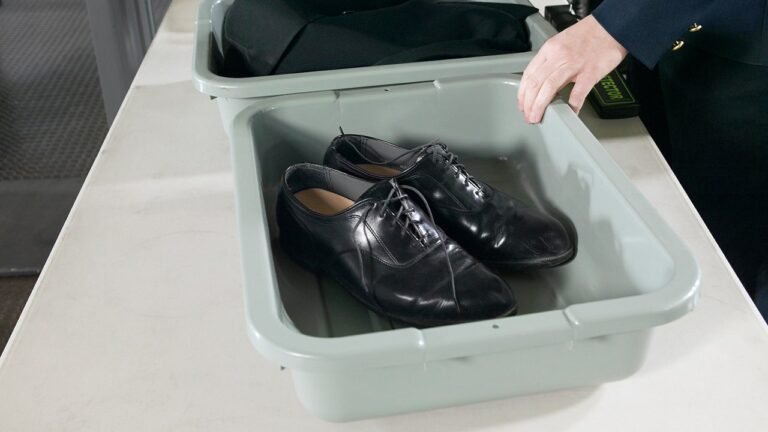
Mistaken Identity: How One Man’s Life Was Turned Upside Down by a Federal Mistake
Introduction: A Nightmare of Mistaken Justice
In the quiet suburbs near Columbia Sc airport, a story of resilience and hope emerges from what could have been a devastating legal nightmare. Brian Wilson, a 35-year-old hardworking individual, found himself at the center of a shocking case of mistaken identity that nearly derailed his entire life. His experience serves as a stark reminder of the potential flaws within our legal system and the human cost of bureaucratic errors.
A Normal Day Turned Upside Down
Brian Wilson was no stranger to hard work. Each day, he would clock in at his job, meticulously building train kits near the Columbia airport. His routine was simple, his work ethic unquestionable. Little did he know that on this particular day, his life would take an unexpected and traumatic turn.
The Moment Everything Changed
It was just another morning, around 8:00 AM, when Brian was going about his usual tasks. Picking parts, moving around the workshop, he had no indication of the storm brewing around him. Suddenly, his supervisor approached, requesting Brian to come to the office. In that moment, Brian’s mind raced with innocent possibilities – perhaps a promotion or a routine discussion.
The Federal Intervention
The Bureau of Alcohol, Tobacco and Firearms (ATF) had been conducting surveillance on Brian for over a year. Their investigation led them to believe they had found their target – a person allegedly involved in drug and gun trafficking. What followed was a sequence of events that would shock anyone committed to the principles of justice.
Arrest and Confusion
Without warning, Brian was:
- Placed in handcuffs
- Removed from his workplace
- Transported to the federal courthouse in Columbia
Throughout the ordeal, Brian maintained his innocence. “You got the wrong guy,” he repeatedly insisted. His plea was simple yet profound – he knew nothing about the alleged criminal activities he was accused of.
The Weight of Wrongful Accusation
Spending approximately 8 hours in custody, Brian experienced the full psychological toll of being wrongfully accused. Each moment was a testament to the potential devastation that can occur when law enforcement makes a critical error.
A Glimmer of Hope
Fortunately, Brian’s case took a turn. The federal government quickly acknowledged their mistake. The charges were dropped, and Brian was released. But the impact of those hours would not easily fade away.
Legal Resolution and Financial Compensation
In a significant move, the federal government settled a lawsuit with Brian for $150,000. While no amount of money can fully compensate for the emotional trauma of a wrongful arrest, it represented a form of acknowledgment and potential path forward.
Brian’s Perspective
Despite the traumatic experience, Brian’s response was remarkably philosophical. “Things happen,” he said, demonstrating an incredible ability to find positivity in a negative situation. His plan was to use the settlement money to pursue his long-held dream of starting a trucking business.
A Broader Perspective on Systemic Errors
Brian’s case is not just an individual story but a reflection of potential systemic issues within law enforcement. His own words highlight a troubling possibility: “I’m sure something like this has happened before… odds are there’s been some people who have slipped through the cracks and are probably still riding in prison because of it.”
The Unseen Victims
This statement raises critical questions about:
- The prevalence of mistaken identities in criminal investigations
- The long-term consequences for wrongfully accused individuals
- The need for more robust verification processes in law enforcement
The Role of Public Defenders
A critical element of Brian’s story is the public defender who believed in his innocence. This legal professional played a pivotal role in ensuring that justice was served, underscoring the importance of dedicated public legal representation.
Lessons Learned and Moving Forward
Brian’s experience teaches us several important lessons:
- The importance of presumption of innocence
- The need for thorough investigation before arrest
- The human cost of bureaucratic mistakes
- The power of resilience in the face of adversity
Recommendations for Systemic Improvement
While Brian’s story has a relatively positive outcome, it calls for:
- More rigorous verification processes in law enforcement
- Enhanced training for investigative procedures
- Better mechanisms for rapid resolution of mistaken identities
- Comprehensive support systems for individuals wrongfully accused
A Story of Hope and Resilience
Brian Wilson’s journey from a potential life-altering wrongful arrest to eventual vindication is more than just a personal story. It’s a powerful narrative about the human spirit, the importance of justice, and the potential for positive transformation even in the most challenging circumstances.
His ability to say, “I’m just trying to pull the positive out of the negative,” serves as an inspiration to anyone facing seemingly insurmountable challenges.
Final Thoughts
As Brian moves forward with his dream of starting a trucking business, his story remains a powerful reminder of the delicate balance between law enforcement and individual rights. It challenges us to remain vigilant, compassionate, and committed to justice.
Disclaimer: This article is based on a specific case and personal account. It is intended to raise awareness about potential systemic issues






